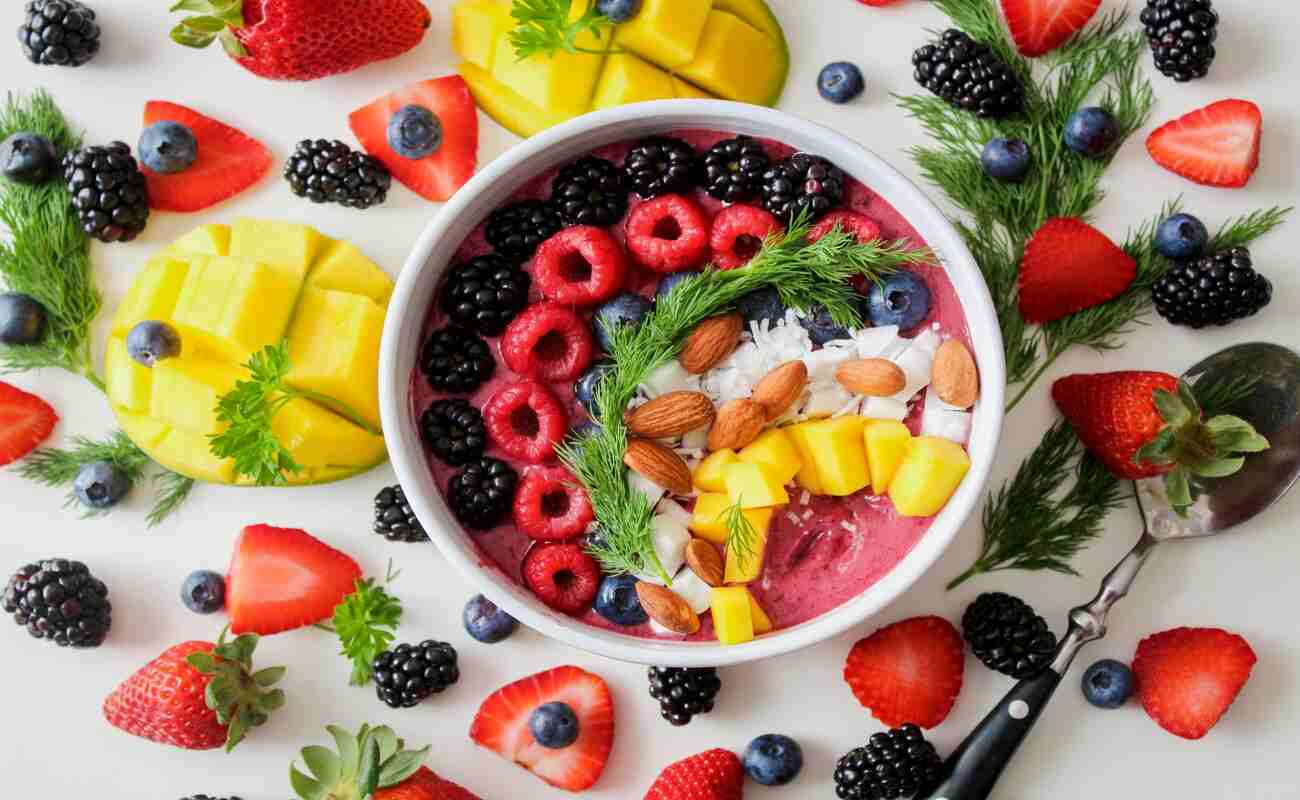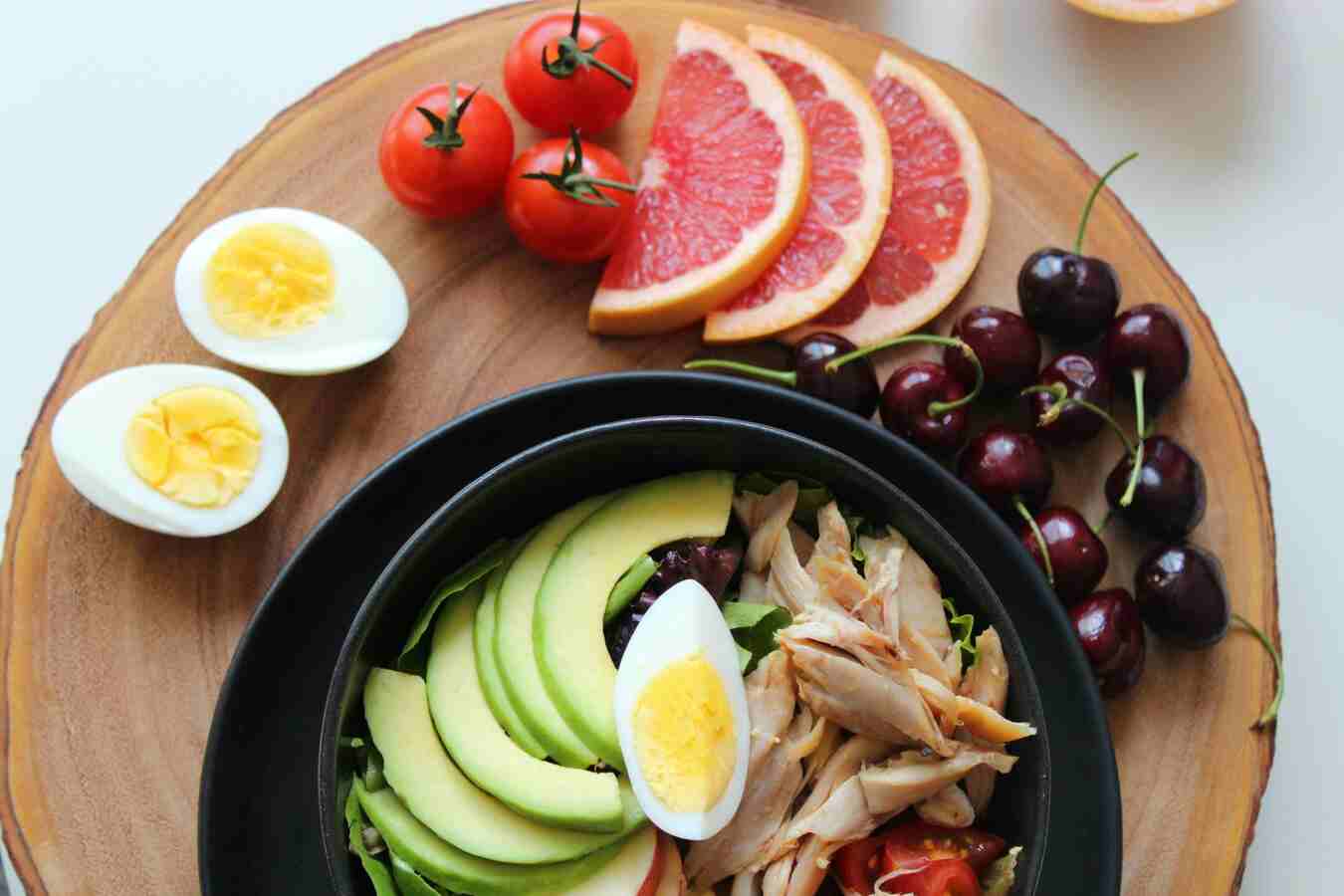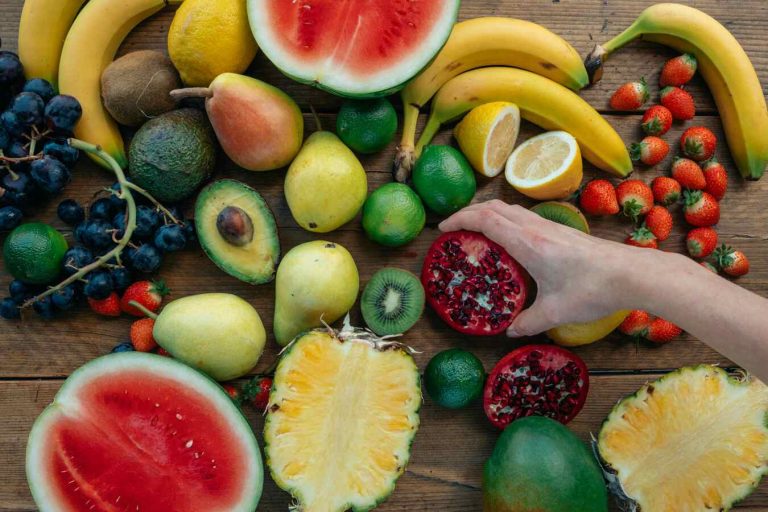Eating Healthy Foods is essential for maintaining a strong body, boosting energy levels, and preventing chronic diseases. However, with so many options available, it can be challenging to determine the best foods for optimal health. This guide explores some of the most nutritious and delicious foods that should be a staple in your diet.
Why Healthy Eating Matters
A well-balanced diet plays a crucial role in overall health. It provides essential nutrients, supports bodily functions, and reduces the risk of obesity, diabetes, and heart disease. Choosing whole, nutrient-dense foods can enhance your physical and mental well-being.
The Best Healthy Foods to Include in Your Diet
1. Leafy Greens
Leafy greens like spinach, kale, and Swiss chard are packed with vitamins, minerals, and fiber. They are excellent sources of vitamin C, vitamin K, and antioxidants that help fight inflammation.
Benefits:
- Supports heart health
- Aids digestion
- Strengthens the immune system
2. Berries
Berries such as blueberries, strawberries, raspberries, and blackberries are rich in antioxidants, fiber, and vitamins. They help protect against oxidative stress and improve brain function.
Benefits:
- Enhances cognitive function
- Supports heart health
- Promotes radiant skin
3. Nuts and Seeds Healthy Foods
Almonds, walnuts, chia seeds, and flaxseeds are loaded with healthy fats, protein, and fiber. These nutrient-dense foods help lower cholesterol and support brain health.
Benefits:
- Reduces inflammation
- Improves brain function
- Supports weight management
4. Fatty Fish
Salmon, sardines, and mackerel are excellent sources of omega-3 fatty acids, which are essential for heart and brain health. They also contain high-quality protein and important nutrients like vitamin D.
Benefits:
- Lowers the risk of heart disease
- Improves mood and mental health
- Supports joint health
5. Whole Grains
Whole grains like quinoa, brown rice, oats, and barley provide fiber, vitamins, and minerals. They help regulate blood sugar levels and improve digestion.
Benefits:
- Aids in digestion
- Supports weight loss
- Lowers the risk of type 2 diabetes
6. Legumes
Beans, lentils, chickpeas, and peas are rich in plant-based protein, fiber, and essential minerals. They promote gut health and keep you full longer.
Benefits:
- Stabilizes blood sugar
- Boosts heart health
- Promotes healthy weight loss
7. Greek Yogurt
Greek yogurt is an excellent source of protein, probiotics, and calcium. It supports digestive health and strengthens bones.
Benefits:
- Improves gut health
- Boosts metabolism
- Enhances muscle recovery
8. Avocados
Avocados are packed with heart-healthy monounsaturated fats, fiber, and essential vitamins. They help reduce bad cholesterol and keep you full longer.
Benefits:
- Supports heart health
- Improves skin and hair
- Regulates blood pressure
9. Eggs the best Nutritious Healthy Foods
Eggs are a powerhouse of protein, vitamins, and healthy fats. They are one of the best sources of choline, which is essential for brain function.
Benefits:
- Supports eye health
- Builds muscle mass
- Enhances cognitive function
10. Sweet Potatoes
Sweet potatoes are rich in fiber, beta-carotene, and vitamin A. They help boost immunity and improve skin health.
Benefits:
- Supports eye health
- Strengthens the immune system
- Aids digestion
11. Cruciferous Vegetables 🥦
- Examples: Broccoli, cauliflower, Brussels sprouts
- Benefits: High in fiber, vitamins, and cancer-fighting compounds
12. Dark Chocolate (in moderation!) 🍫
- Benefits: Contains antioxidants and can support heart health

15 Best Nutrition Foods to Boost Your Health Benefits
Nutrition food list The Best Healthy Foods
1. Protein Sources
- Lean meats: Chicken breast, turkey, lean beef
- Fish: Salmon, tuna, sardines, mackerel
- Eggs: Whole eggs, egg whites
- Dairy: Greek yogurt, cottage cheese, low-fat milk
- Plant-based: Lentils, chickpeas, black beans, quinoa, tofu, tempeh, edamame
2. Healthy Fats
- Nuts & Seeds: Almonds, walnuts, chia seeds, flaxseeds, sunflower seeds
- Oils: Olive oil, avocado oil, coconut oil
- Avocados
- Fatty Fish: Salmon, mackerel, sardines
- Dark Chocolate (85% cocoa or higher)
3. Carbohydrates (Whole & Complex)
- Whole grains: Brown rice, quinoa, oats, whole wheat bread, barley
- Legumes: Lentils, black beans, chickpeas
- Starchy Vegetables: Sweet potatoes, squash, beets
- Fruits: Bananas, apples, berries, oranges, pears
4. Vegetables (Rich in Fiber, Vitamins & Antioxidants)
- Leafy Greens: Spinach, kale, arugula, Swiss chard
- Cruciferous Vegetables: Broccoli, cauliflower, Brussels sprouts, cabbage
- Colorful Vegetables: Carrots, bell peppers, tomatoes, eggplants
5. Dairy & Dairy Alternatives
- Low-fat yogurt
- Greek yogurt
- Almond milk, soy milk, oat milk
6. Hydration & Drinks
- Water (the best!)
- Green tea
- Herbal teas
- Coconut water
Additional Healthy Eating Tips

1. Incorporate More Plant-Based Healthy Foods
A plant-based diet is rich in vitamins, minerals, and antioxidants. Including more vegetables, fruits, and whole grains in your meals can improve overall Healthy Foods and reduce the risk of chronic diseases.
2. Prepare Meals at Home
Cooking at home allows you to control ingredients and avoid unhealthy additives found in processed foods. Try experimenting with healthy recipes to make nutritious eating enjoyable.
3. Practice Mindful Eating
Avoid distractions while eating and focus on enjoying your meals. Eating slowly helps you recognize when you are full, preventing overeating.
4. Limit Processed Foods
Processed foods often contain unhealthy fats, sugars, and artificial additives. Opt for whole, natural foods instead to maintain optimal health.
5. Stay Active
Pairing a healthy diet with regular exercise enhances overall well-being. Physical activity helps in weight management, boosts mood, and strengthens the heart.
(FAQs)
Q1: What is the healthiest food to eat every day?
A: Leafy greens, nuts, berries, and lean proteins like fish and eggs are some of the best foods to consume daily.
Q2: Are all fats unhealthy?
A: No! Healthy fats from avocados, nuts, seeds, and fatty fish are essential for brain and heart health.
Q3: How can I eat healthy on a budget?
A: Buy in bulk, choose seasonal produce, and focus on affordable nutrient-dense foods like beans, lentils, and whole grains.
Q4: Can I lose weight by eating healthy foods?
A: Yes! A diet rich in whole foods and proper portion control can help with weight management.
Q5: How much water should I drink daily?
A: Aim for at least 8 glasses (64 ounces) of water per day, but individual needs may vary based on activity level and climate.
Q6: What are some quick and healthy snacks?
A: Nuts, Greek yogurt, hummus with veggies, fresh fruits, and homemade smoothies are excellent healthy snack options.
Q7: Can I still enjoy desserts while eating healthy?
A: Yes! Opt for healthier alternatives like dark chocolate, fruit-based desserts, or Greek yogurt with honey and nuts.
Conclusion
Eating Healthy Foods doesn’t have to be complicated. Incorporating nutrient-rich foods into your diet can significantly improve your well-being. Focus on whole, natural foods, stay hydrated, and make mindful choices for a healthier and more energetic life. A balanced diet, combined with regular exercise, is the key to long-term health and vitality. Start making small changes today, and enjoy the benefits of a nutritious lifestyle!



